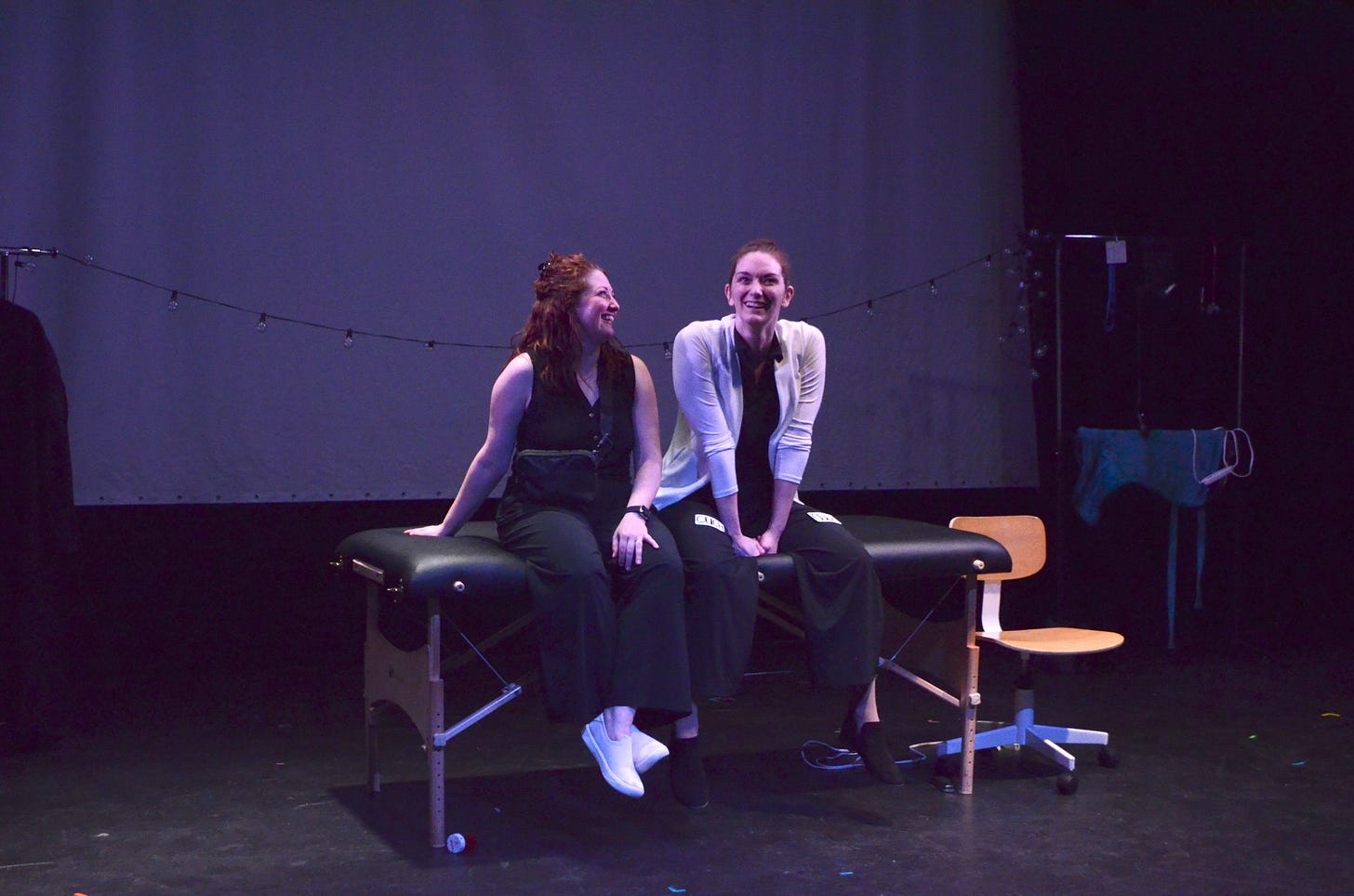Fringe 2025 Review: Z is for Zebra
This developmental piece could easily have been in the mainstage lineup
Z is for Zebra might be my favorite show of this year’s Fringe so far. Katie Scarlett has crafted something remarkable here—a tightly executed, deeply personal, and often wickedly funny piece that finds its power not in spectacle, but in honesty. It’s a perfect example of what Fringe does best: presenting work that feels both raw and refined, intimate and universal.
The conceit is clever and engaging—Scarlett arrives to teach a college class in the social work department, but before she can get through her syllabus, she’s interrupted by a hyper-enthusiastic Teacher’s Assistant (played with boundless energy by Kate Stark). What begins as a light academic exercise quickly becomes a powerful unpacking of Scarlett’s real-life experiences living with chronic illness. We move through moments shaped by migraines, cervical dystonia, and Ehlers-Danlos Syndrome—not in a linear “and then this happened” kind of way, but with theatricality and insight. Each scene builds on the last, peeling back another layer of what it means to live in a body that constantly defies you.
What struck me most was how gracefully Scarlett navigates tone. The show never preaches, but it absolutely has something to say—about health care systems, about disability, and about the exhausting performative dance so many people must do just to be believed. The script’s snarky asides (and Scarlett’s impeccable delivery) bring much-needed levity, and the vulnerability lands all the more powerfully because of it. Several audience members teared up. I did, too.
Kate Stark’s performance as the Teacher’s Assistant is a whirlwind of nervous excitement and blind institutional cheerleading, while Ben Dudley’s understated, bone-dry contributions offer perfectly timed comic relief. Their presence gives the piece depth and texture, helping to shape the landscape of Scarlett’s story without overwhelming it.
Director Liz Carman keeps the movement crisp and intentional—there’s not a wasted moment. I didn’t check my watch once, which for me, is high praise. Technically, the production feels polished and thoughtful: Becca Schall’s projections enhance rather than distract, Rupert Spraul’s sound design weaves seamlessly into the action, and Jared Earland’s lighting is sophisticated in ways we don’t often see in Fringe-level work. It’s the kind of show that could easily have been included in the mainstage Fringe lineup.
Also worth noting: the “syllabus” handed out to audience members doubles as the show’s program, but it’s also filled with vocabulary, definitions, and medical context—a small touch that ends up being wildly effective. This is what psychoeducation should look like. Clear, engaging, and built into the experience in a way that respects both the performer’s story and the audience’s curiosity.
Z is for Zebra is a developmental offering at this year’s festival, but it doesn’t feel unfinished. It feels intentional, urgent, and above all, human. I hope this piece gets more life beyond Fringe. It deserves to be seen, heard, and felt.






Spot Freaking On! One of the best Fringe shows EVER! Shame it was a "Development" piece....it was more complete and "Fully Developed" than a lot of the shows I see! Here's hoping for a LONG future life for this important MUST SEE show!